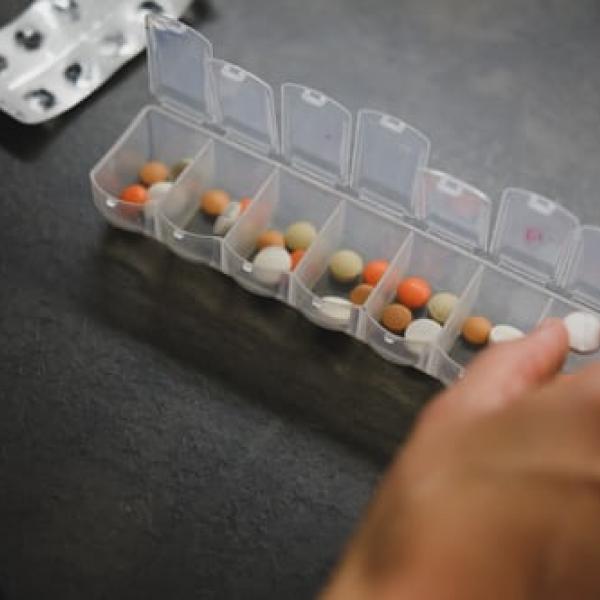
Saving the NHS £1.9m
How the Access to Leadership course helped deliver savings of £1.9m
Access to Leadership
The importance of relationships in leadership
A journey of inquiry
Access to Leadership took Emma and the other participants on a journey of enquiry and self-discovery.
“We learned how people tell stories in their lives. In other words, something happens and we make it “mean” something and then we gather the evidence to support our belief.
This becomes our “story” and these stories can be negative or positive.
InterBe introduced us to the concept of possibility; that, by changing our stories, our lives could change.
A lot of things really fell into place for me during this process.”
Applying this learning to the workplace
Emma used what she had learned to alter her approach in the workplace. “I began to think about who I was being not just what I was doing. By gaining a deeper understanding of myself, I learned to accept responsibility for my choices and my part in working relationships. I became more conscious of who I was being in my relationships with others, and more confident in my own abilities.”
This confidence led Emma to undertake a project that, she admits, she would have been unlikely to tackle prior to the Access to Leadership course:
“Our locality has a huge QIPP[1] target of £9 million and I wanted to make a real contribution to achieving this target. A colleague had drawn up a proposal to deliver VAT savings on chemotherapy drugs by introducing Homecare, a service which allows patients to collect their medicines from the delivery point of their own choice, rather than having to go into hospital to receive them (and potentially experience a long wait). It seemed a win/win as the patients would have a better experience, the hospital would benefit from not having to use clinical time to deliver the treatment and the CCG would save the cost of VAT on the IV drugs.”
Building positive relationships
Emma asked her manager if she could work with the provider organisation (in this case, the Royal Devon and Exeter Hospital) to implement the QIPP proposal. Using the skills she had learned in the Access to Leadership, she built a positive relationship with the Chief Pharmacist at the Royal Devon and Exeter Hospital, Tracey Foss. Together, they determined which drugs might be suitable for delivery via homecare.
[1] QIPP stands for Quality Innovation Productivity and Prevention. It is a programme developed by the Department of Health to support NHS organisations to improve the quality of care they deliver while making efficiency savings that can be reinvested into the NHS.
“The project took around 12 months in total. Once we’d agreed a potential list of drugs, there was a big piece of work to convince some clinicians that it might be possible to change from traditional trust dispensing to homecare delivery. The key to this was to build trust, to show the clinicians that this was in everyone’s best interests. We worked in partnership with the provider to help to leverage the change, at times involving the Directorate Managers in discussions with clinicians. I had learned from my training that the way you tell a story is key and, by telling it in a way that they could see the benefits for all concerned, we were able to assist the hospital in driving forwards the change.”
A £1.9m saving…and the rest
A £1.9m saving…and the rest
The move to oral chemo drugs via homecare for some treatments helped both the commissioners and the RD&E to achieve combined savings of £1.9m towards the £9m QIPP target.
Tracey said:
“The RD & E was able to deliver significant QIPP savings in 2012/13 as a result of good collaboration and regular project meetings with the CCG team. The pharmacy department was able to act as the link between the commissioners and the clinical areas. In 2013/14 the joint working continued and many other clinical areas were reviewed and efficiency savings of £1.8m were delivered. In 14/15 the challenges for continued delivery have increased and currently a joint delivery program with the CCG and the Area Team for NHS England is on-going. The intention is to embed clinical pharmacists to work at the point of prescribing, offering support and advise to prescribers, challenging delivery decisions to ensure that the patient receives care in the correct location and by the most cost-effective means. If we had not already shown that we could work collaboratively we would not have been offered the opportunity to work together in this way in the future.”
Emma also pointed out:
“These savings only relate to the direct cost of the drugs, of course. This figure doesn’t include any productivity savings made by the hospital, or savings made by the patients, in terms of travel to the hospital, lost work time or childcare. So, the real savings are likely to be far greater.”
She concludes: “This was a great outcome for the CCG, for the hospital and for patients. The Access to Leadership training contributed directly to my confidence in tackling a project of this sort and I used the skills I had learned on the course to build a good relationship with the provider and to overcome any potential sticking points during the transition process.”
